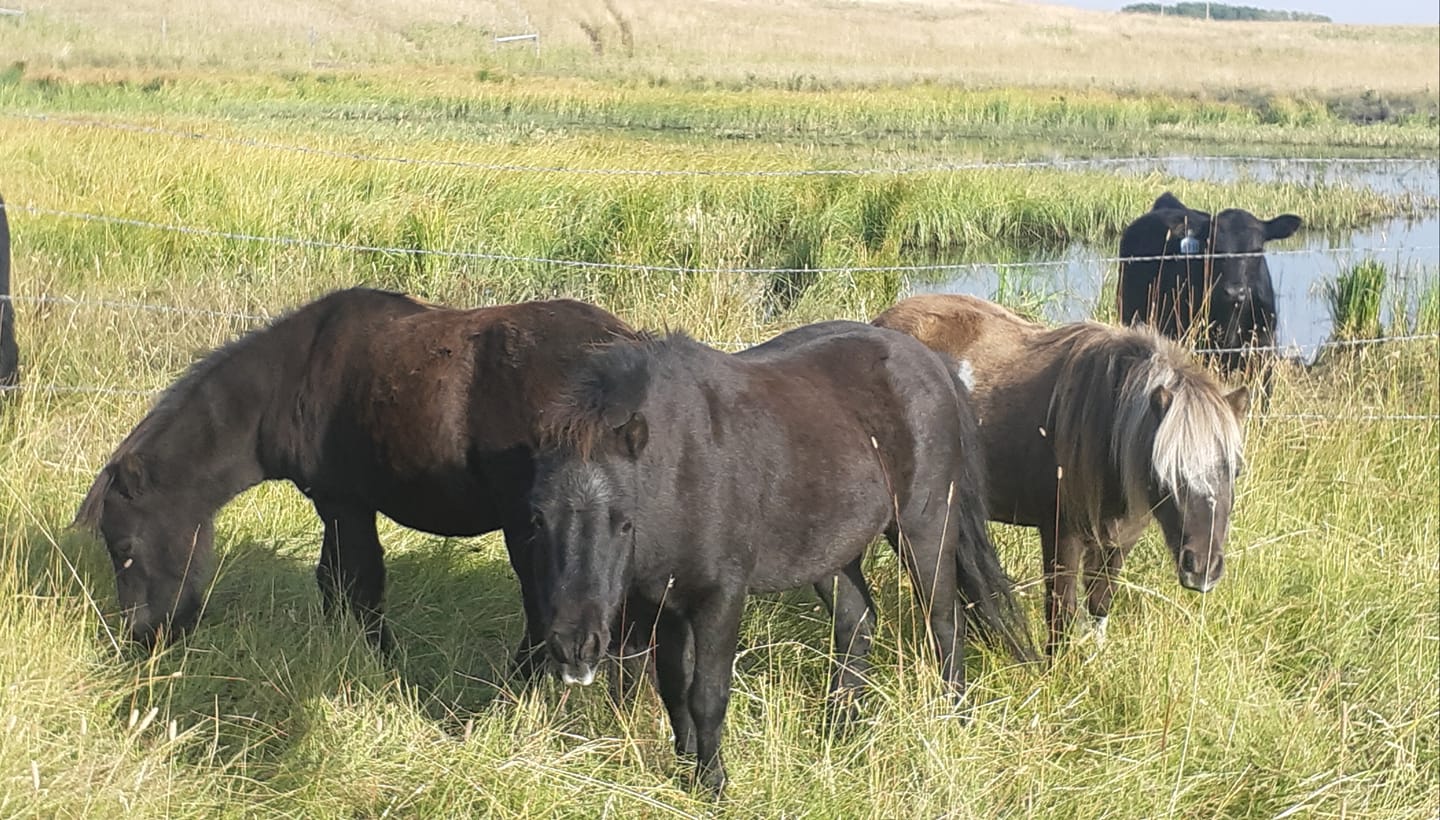We’ve all seen them or had to deal with them – the horse that freaks out when you take them away from their friends.
They can’t focus, they call out for their friends, they try to get back to them. In some cases, they’re dangerous, crashing into and over humans, fences, or anything else in their way in their hurry to get back to their herd.
What Not To Do
In the past, I know I’ve gotten into huge fights with horses who were herdbound, trying to “make them” pay attention to me.
I was trying to keep myself safe, when that’s all they were trying to do too.
But the more I got after them for their “bad” behaviour, the less safe they felt, and the more dangerous they became.
Why?
PANIC/GRIEF is one of the seven emotional systems outlined by affective neuroscientist Jaak Panksepp as the core of every animals emotional lives. As herd animals, a horse’s safety is intrinsically linked to staying with the herd, and separation from that safety is one of the most common ways that we’ll find them in the PANIC/GRIEF system.
A herdbound horse isn’t “being bad” – they’re terrified that their herd is gone and their life is in danger if they don’t get back to them at all costs.
And when we use punishment to try and refocus a herdbound horse, we’re just proving them right – separation from their herdmates DID make bad and scary things happen to them.
So what can we do instead?
Remember, that a horse who is experiencing PANIC/GRIEF isn’t able to learn. They’re only able to to focus on their fear of being separated from the safety of their herd, nothing else. Even if you do manage to get them to do something, they’re not going to retain it and learn.
So step one is, let them stay near their herd.
There’s no need to make them panic – instead, simply spend your time working with your horse and teaching them new skills where they can see, smell, or even touch their friends at first. If that means working just outside the fence of their own pasture, or bringing their favourite friend along to the arena, you’re going to make much better progress with your horse if you first work on teaching basic skills and communication without separating them from their friends.
Once you and your horse are beginning to build a relationship, and have a shared system of communication, then you can start to gradually work on moving away from their friends.
At first, that might mean taking just a step or two away, performing a well established, highly reinforced behaviour, and then going right back to the other horses as a reward. And then when that’s going well, adding a few more steps, going out of sight, and eventually, where ever you’d like.
Remember though, not to make every single attempt harder. When you’re able to go out of sight, still sometimes let them work just one step away and go back, to make it seem easy and obvious that they’ll always come back and their friend is always going to be there when they do.
It won’t happen overnight, but with a bit of patience, your horse will realize they are safe with you, just as they are with their herd.
Prevention
Horses form strong bonds with their herdmates, and herdbound horses are common because we often remove them from those bonded friends without any thought.
Foals are weaned at a young age of just 3 or 4 months of age, and completely removed from their dam, making one of their first experiences with humans the loss of their biggest relationship and support.
Horses are sold to new farms, taking them away from everything familiar, and their established friends.
While some horses adapt to these major life changes without any obvious distress, others show behaviour issues like becoming herdbound, or develop health issues, such as ulcers.
While we may have to wean our foals eventually, and horses do move on to new homes, being aware of the impact can help us to do so with as much empathy as possible to minimize the trauma.
Behaviour is Communication
Horses aren’t able to say, “Excuse me, but I’m very uncomfortable leaving the safety of my herd” so we need to be listening to their behaviour instead, and then thinking about what emotions are driving it. Horses don’t misbehave to ruin your day, or because they’re just “being bad” – they’re trying to tell us that something is uncomfortable for them, and we need to listen, and find a way to make what we want them to do what they want to do too.
If you’d like to learn more about Understanding Your Miniature Horse, the eBook is available below!
